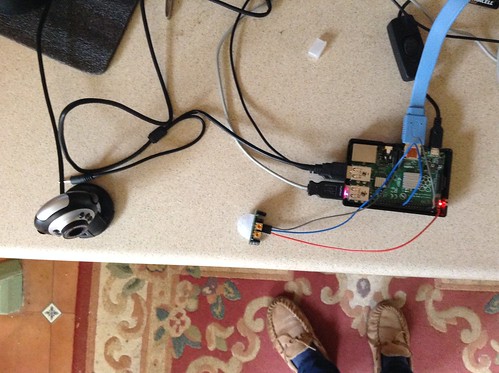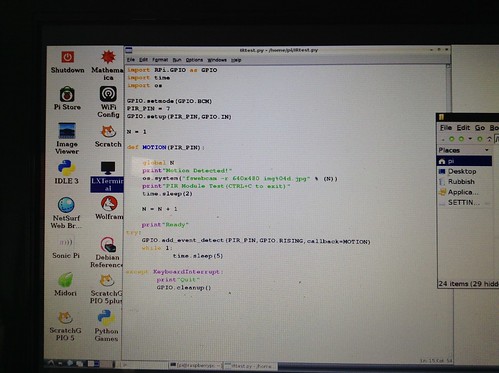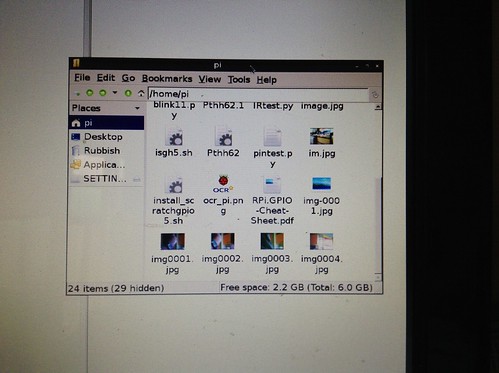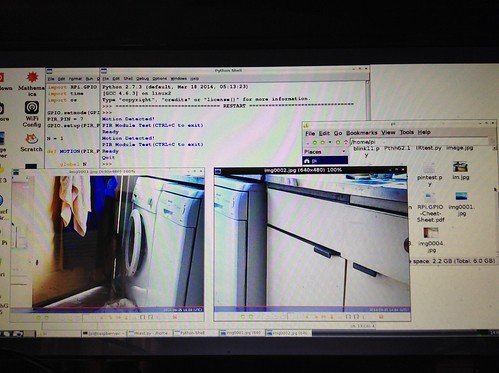It took a couple of hours scouring the net to find all the information I needed along with lots of failed coding attempts but eventually I got the idea to work just as a test layout in the kitchen. Very few components are needed - the Raspberry Pi (B+ in my case), the USB camera and the PIR:
(clicking on a photo will open a larger copy)

Of course a screen, mouse and keyboard were attached while coding.
Cobbling together several pieces of code from different sources resulted in:

modules loaded:
GPIO to acces the pins
time to be able to add delays where needed
os to give access to fswebcam code
N is a numerical counter which increments each time a photo is saved and added as a four digit number to the file name.


Next will be to get the photos saved on a USB stick instead of the micro SD card.

You have an image with a bad link. It does show on Flikr.
ReplyDeleteThis is impressive. Not for me it's too complicated but it's good to see what can be achieved.
Adrian: They all seem OK here with Safari and Firefox. Maybe you hit a Flickr glitch. I like the fact that I am coding on the Pi unlike with the Arduino where the coding is done separately on the PC first. Makes it quicker to see what alterations do.
DeleteI like the Arduino. I don't bother at the moment as I am trying to get my head around Python. Blender uses it and allows me to write simple code to speed up the bits I use. I find it really hard. Blender is very difficult.
DeleteAha. That makes two of us battling with Python as that is what this project was written in.
DeletePS. I got some thumb drives a month ago from Tesco 8GB for £4.99p each. Maplin probably do them cheaper.
ReplyDeleteAdrian: They are amazingly cheap these days.
Delete